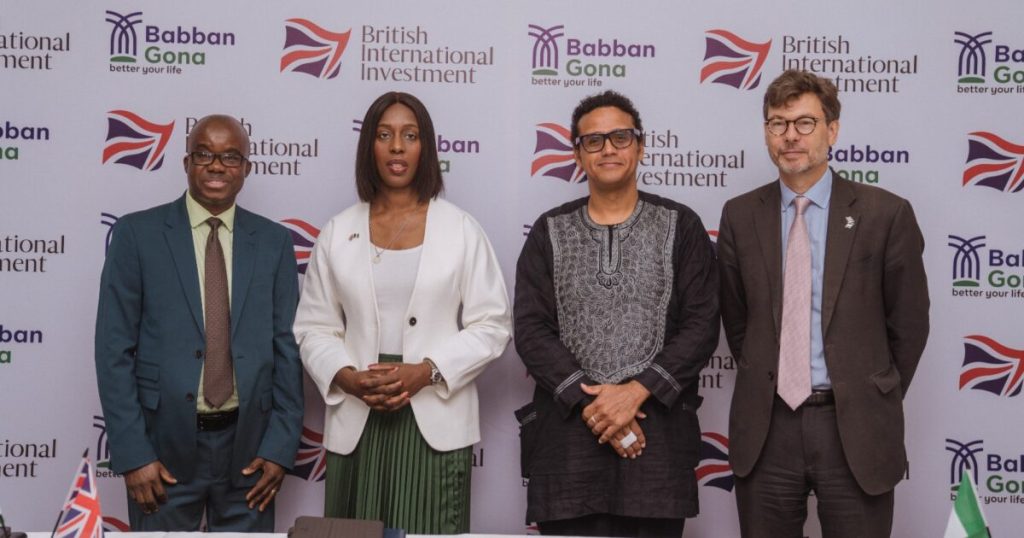Paragraph 1: Addressing the Agricultural Challenges in Northern Nigeria
Northern Nigeria, a critical agricultural region responsible for a significant portion of the nation’s maize production, faces persistent challenges that hinder its full potential. Low productivity, high post-harvest losses reaching up to 30%, and increasing vulnerability to climate change impacts such as flooding and droughts plague the sector. These issues are further compounded by limited access to finance, essential agricultural inputs, adequate training, and reliable market access for smallholder farmers, the backbone of Nigerian agriculture. These interconnected challenges necessitate innovative solutions to boost productivity, enhance resilience, and improve the livelihoods of farmers in the region.
Paragraph 2: Babban Gona’s Innovative Approach to Empowering Smallholder Farmers
Babban Gona, a Nigerian agri-tech platform, offers a promising solution to address these systemic problems by providing a comprehensive suite of services to smallholder farmers. Leveraging an AI-powered platform, the company delivers end-to-end support, including access to high-quality inputs, financial credit, training on climate-smart agricultural practices, and assistance with harvest, storage, and market access. This integrated approach aims to boost yields, reduce post-harvest losses, and enhance farmers’ resilience to climate shocks. By empowering farmers with knowledge, resources, and market connections, Babban Gona aims to transform smallholder agriculture in Nigeria.
Paragraph 3: The Franchise Model: Fostering Entrepreneurial Growth and Sustainable Finance
Babban Gona’s unique franchise system exemplifies its commitment to sustainable growth and empowerment. The model enables successful farmers to establish and manage their own micro-enterprises, offering crucial agricultural services and working capital financing to fellow farmers within their communities. This peer-to-peer approach strengthens the agricultural ecosystem by fostering entrepreneurship and expanding the reach of essential services. Importantly, the franchise model provides a pathway for these micro-enterprises to scale their operations and eventually access financing from local banks, creating a self-sustaining cycle of growth and financial inclusion for smallholder farmers.
Paragraph 4: BII’s Investment: Catalyzing Transformation in Nigerian Agriculture
Recognizing the potential of Babban Gona’s innovative model, British International Investment (BII), the UK’s development finance institution and impact investor, has announced a $7.5 million debt investment in the company. This strategic investment aims to bolster Babban Gona’s efforts to address the critical challenges facing smallholder farmers in northern Nigeria. BII’s commitment aligns with its broader strategy of deploying catalytic capital to support innovative, high-impact businesses that drive positive change in emerging economies. This funding injection is expected to significantly expand Babban Gona’s reach and impact.
Paragraph 5: Projected Impact and Long-Term Vision
With the new funding from BII, Babban Gona projects to reach approximately 140,000 farmers in northern Nigeria by 2029. The investment is expected to yield significant improvements in crop yields, increased incomes for farmers, and enhanced climate resilience across the region. The long-standing relationship between Babban Gona and the British government, dating back to the initial investment in 2013, underscores the shared commitment to transforming the agricultural landscape in Nigeria. The latest investment signals a significant step forward in their collaborative efforts to improve the lives of smallholder farmers and contribute to a more sustainable and prosperous future for Nigerian agriculture.
Paragraph 6: Partnership for Sustainable and Inclusive Growth
The partnership between BII and Babban Gona represents a powerful example of public-private collaboration to drive positive change in developing economies. The $7.5m investment is not simply a financial commitment, but a testament to the UK’s commitment to sustainable and inclusive growth in Nigeria. This investment also highlights the potential of impact investing to address complex challenges, creating a ripple effect of positive change across the agricultural sector and beyond. The collaboration aims to strengthen food security, promote climate resilience, and create a more sustainable and prosperous future for Nigeria’s smallholder farmers, laying the foundation for a more robust and resilient agricultural sector.


